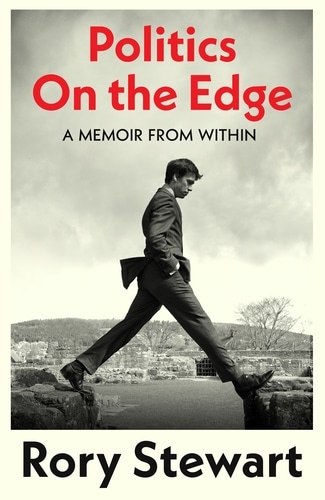 BBC News
BBC NewsBorrowing was £17.4bn last month, the second highest October figure since monthly records began in 1993.

Christopher Jackson
This is a fabulous book written by a man who thought he might be prime minister but who has instead become Britain’s premier political podcaster. It always used to be said during the Cameron years that Stewart was the easiest man to get an interview with – perhaps he has always been a creature of the media.
But this book tells us what it’s like to be a person of real interest and imagination caught up in Westminster and ministerial life. “Stop being so interesting,” as Liz Truss, then environment secretary, had said to her junior minister. Skilled at taking her own advice, it was never to be expected that Stewart would be able to follow suit. By the time he arrived in Parliament he had already walked Afghanistan on foot.
Anybody who can do that might not particularly enjoy being reined in by parliamentary whips. Stewart was always an unlikely MP – and an especially unlikely Conservative MP, not least because he had voted Labour in his teens. He was a man whose life had already attained filmic proportions by the time he was representing the lovely constituency of Penrith and the Border. Brad Pitt had taken an option on one of his books.
This book, an important work of historical documentation, won’t cause a deluge of applications from would-be candidates to Conservative HQ. Here we meet the lordly and embedded civil servant who thinks he knows better than the prisons minister. We see Theresa May – to whom Stewart would be admirably loyal over the ill-fated Chequers agreement – ‘with some of the monarch’s stiff authority’ – offering him a Cabinet position. Overall he would hold six ministerial roles during that turbulent time.
Stewart is still by turns baffled and angry at Boris Johnson’s premiership and is especially good at pointing out the absurdity of Johnson as a Foreign Secretary: “A man who enjoyed the improbable, the incongruous and the comically over-stated had been trapped in a department whose religion was tact and caution,” he writes.
Johnson’s ascendancy would turn out to be far briefer than he expected. Stewart would probably have stood a good chance of becoming leader under different rules; he was certainly the best debater in the field in 2019. It wasn’t to be – in this book Stewart alikens his predicament against the European Research Group as being like a book club at a Millwall Game. He was up against those who had spent a lifetime thinking about the perfidy of Europe – and, in the case of Sir Bill Cash, thinking about nothing else.
The final verdict is a grim one: “Nine years in politics had been a shocking education in lack of seriousness. I had begun by noticing how grotesquely unqualified so many of us were for the offices we were given,” Stewart writes. This book will also not do the impossible and rehabilitate Britain’s shortest-serving PM: “I had found, working for Liz Truss, a culture that prized campaigning over careful governing, opinion polls over detailed policy debates, announcements over implementation. I felt that we had collectively failed to respond adequately to every major challenge of the past 15 years: the financial crisis, the collapse of the liberal ‘global order’, public despair and the polarisation of Brexit.” So back to the media then – where politicians increasingly seem happier in any case.